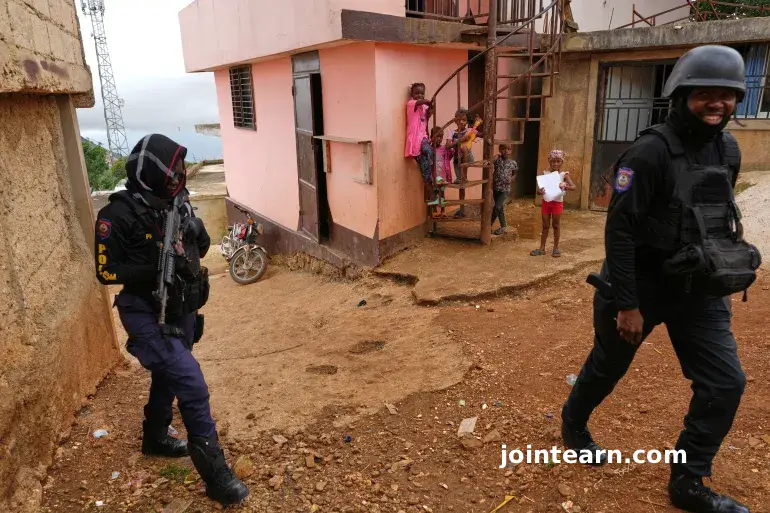
The United States Treasury Department has sanctioned two Haitian individuals—a former police officer and an alleged gang leader—due to their involvement with the Viv Ansanm criminal alliance, a coalition responsible for widespread violence in Haiti. The UN Security Council has also sanctioned the two men and extended an arms embargo on Haiti that has been in place since 2022.
Details of the Sanctions
The Treasury named Dimitri Herard, a former police officer, and Kempes Sanon, leader of the Bel Air gang, as key figures within Viv Ansanm. The sanctions freeze any assets or property the two men may have in the U.S. and prohibit U.S.-based entities from conducting transactions with them.
“Today’s action underscores the critical role of gang leaders and facilitators like Herard and Sanon, whose support enables Viv Ansanm’s campaign of violence, extortion, and terrorism in Haiti,” stated Bradley T. Smith, director of the U.S. Office of Foreign Assets Control.
Context: Viv Ansanm and the Haitian Crisis
Since the assassination of Haitian President Jovenel Moise in 2021, Haiti has been engulfed in political instability and a power vacuum. The last national elections were held in 2016, and Haiti has lacked fully elected officials since 2023. Criminal networks, particularly gang coalitions like Viv Ansanm, have exploited the instability to expand their influence, especially in the capital, Port-au-Prince.
According to the United Nations, Viv Ansanm now controls approximately 90% of the capital, displacing nearly 1.4 million people, and contributing to over 5,600 deaths and more than 2,200 injuries in 2024 alone.
Herard and Sanon’s Criminal Activities
The Treasury accused Herard of colluding with Viv Ansanm, including training gang members and supplying weapons. Notably, Herard had previously been imprisoned in connection with the assassination of Moise but escaped in 2024.
Sanon, as leader of the Bel Air gang, is cited as having a “significant role” in Viv Ansanm’s operations, including killings, extortion, and kidnappings. Both men have become central figures in the efforts to destabilize Haitian society.
U.S. and UN Responses
The UN Security Council mirrored the U.S. sanctions, designating Herard and Sanon while extending the arms embargo on Haiti. In September, the UNSC approved the creation of a “gang suppression force” with a 12-month mandate to support Haitian police and military efforts. The force, expected to replace a Kenyan-led mission, will include 5,550 personnel tasked with combating gang violence.
Despite these measures, the Trump administration criticized the UN for not going far enough. U.S. Ambassador Jennifer Locetta called for more targeted sanctions, stating:
“While we applaud the Council for designating these individuals, the list is not complete. There are more enablers of Haiti’s insecurity evading accountability. Haiti deserves better.”
Trump Administration’s Approach
Since taking office for a second term, President Donald Trump has taken a hardline stance against criminal organizations in Latin America and the Caribbean. His administration has labeled certain criminal networks as “foreign terrorist organizations”, citing their links to drug trafficking, unregulated immigration, and regional destabilization. Viv Ansanm and other Haitian gangs were added to this designation in May 2025.
The recent sanctions reflect the U.S. strategy to combat organized crime in Haiti and hold key individuals accountable for the ongoing humanitarian and security crisis.


Leave a Reply